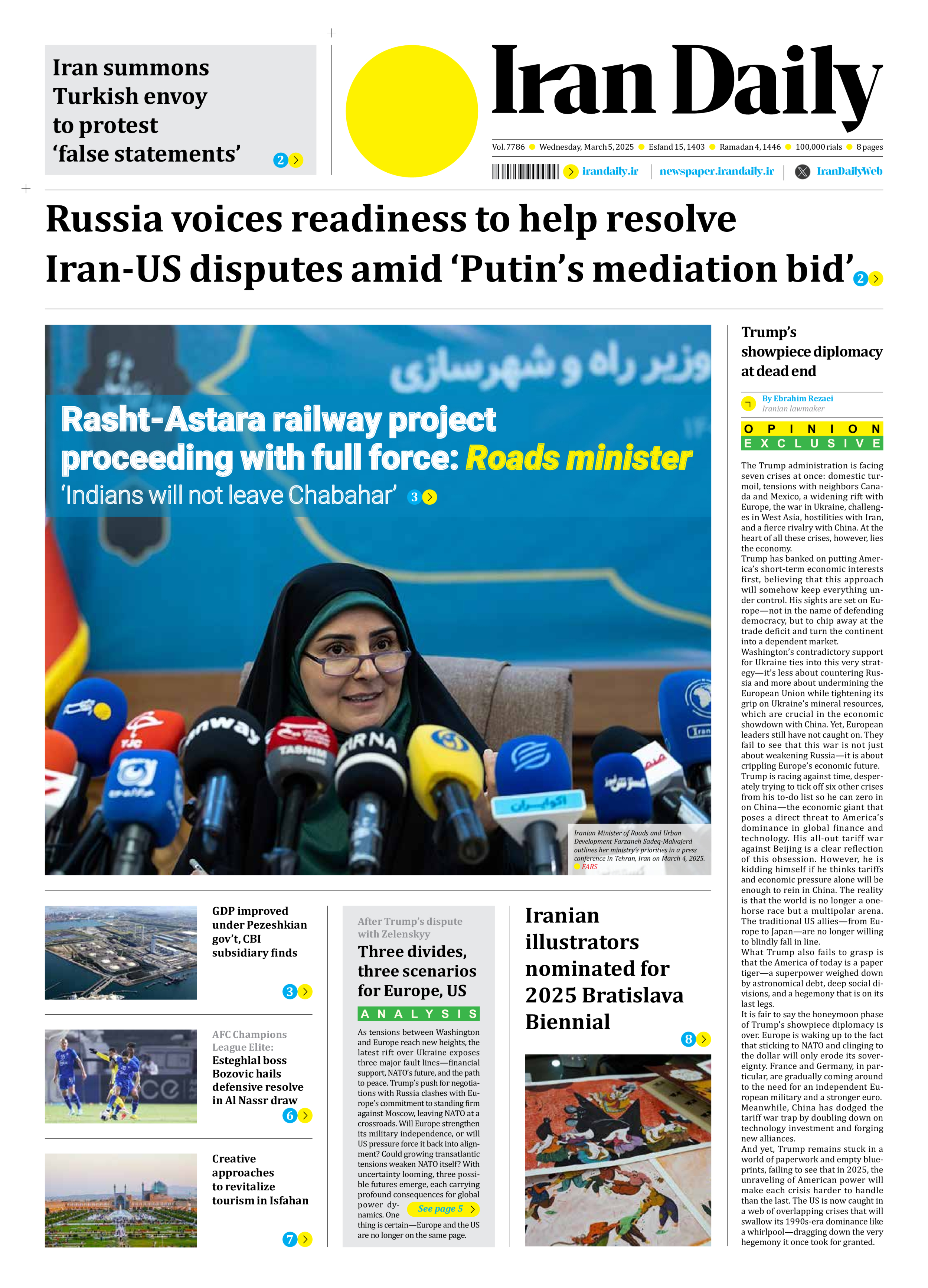
Trump’s showpiece diplomacy at dead end
By Ebrahim Rezaei
Iranian lawmaker
The Trump administration is facing seven crises at once: domestic turmoil, tensions with neighbors Canada and Mexico, a widening rift with Europe, the war in Ukraine, challenges in West Asia, hostilities with Iran, and a fierce rivalry with China. At the heart of all these crises, however, lies the economy.
Trump has banked on putting America’s short-term economic interests first, believing that this approach will somehow keep everything under control. His sights are set on Europe—not in the name of defending democracy, but to chip away at the trade deficit and turn the continent into a dependent market.
Washington’s contradictory support for Ukraine ties into this very strategy—it’s less about countering Russia and more about undermining the European Union while tightening its grip on Ukraine’s mineral resources, which are crucial in the economic showdown with China. Yet, European leaders still have not caught on. They fail to see that this war is not just about weakening Russia—it is about crippling Europe’s economic future.
Trump is racing against time, desperately trying to tick off six other crises from his to-do list so he can zero in on China—the economic giant that poses a direct threat to America’s dominance in global finance and technology. His all-out tariff war against Beijing is a clear reflection of this obsession. However, he is kidding himself if he thinks tariffs and economic pressure alone will be enough to rein in China. The reality is that the world is no longer a one-horse race but a multipolar arena. The traditional US allies—from Europe to Japan—are no longer willing to blindly fall in line.
What Trump also fails to grasp is that the America of today is a paper tiger—a superpower weighed down by astronomical debt, deep social divisions, and a hegemony that is on its last legs.
It is fair to say the honeymoon phase of Trump’s showpiece diplomacy is over. Europe is waking up to the fact that sticking to NATO and clinging to the dollar will only erode its sovereignty. France and Germany, in particular, are gradually coming around to the need for an independent European military and a stronger euro.
Meanwhile, China has dodged the tariff war trap by doubling down on technology investment and forging new alliances.
And yet, Trump remains stuck in a world of paperwork and empty blueprints, failing to see that in 2025, the unraveling of American power will make each crisis harder to handle than the last. The US is now caught in a web of overlapping crises that will swallow its 1990s-era dominance like a whirlpool—dragging down the very hegemony it once took for granted.







